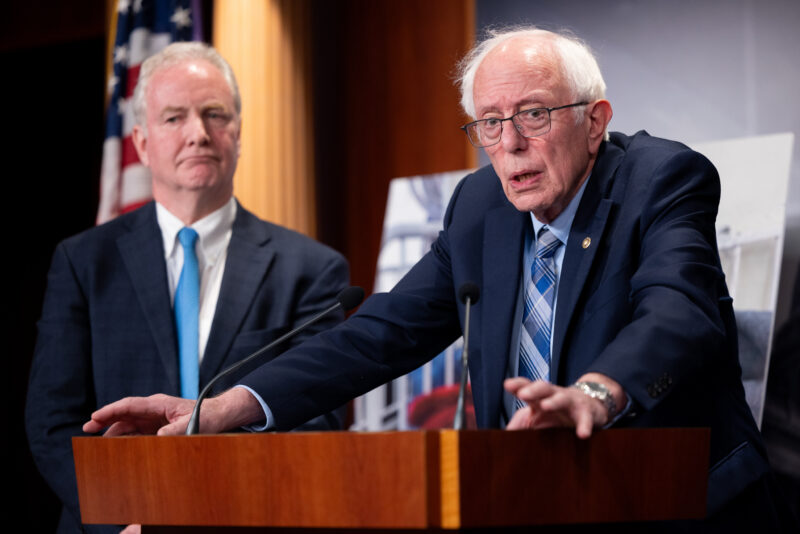Rep. Virginia Foxx holds low expectations that colleges will change course following antisemitism hearings
‘Maybe there’ll be some changes in the schools we’ve highlighted. But even there, I don’t expect a lot,’ Foxx said
Michael A. McCoy/Getty Images
Rep. Virginia Foxx (R-NC) speaks at a hearing called "Calling for Accountability: Stopping Antisemitic College Chaos" before the House Committee on Education and the Workforce on Capitol Hill on May 23, 2024 in Washington, DC.
Rep. Virginia Foxx (R-NC) said she has low expectations, even after a series of high-profile hearings with university presidents on antisemitism on college campuses, that university leaders will make significant changes to their responses to antisemitism on campus.
Asked what might happen on college campuses if the executive branch changes hands after the November election, Foxx, who chairs the House Committee on Education and the Workforce, largely predicted that the status quo will continue.
“I’m a little skeptical of whether the presidents of many of these institutions will take any different kinds of action than what they’re taking now,” she said, speaking on Monday at the American Enterprise Institute. “I think they’ll rant and rave, I think they’ll scream things like ‘academic freedom,’ I think they’ll say, ‘But look over here at these other kinds of things.’”
“I’d like to believe that as a result of what we’ve done already, you’re going to see major changes on campus,” Foxx continued. “I’d like to see that happen. Maybe there’ll be some changes in the schools we’ve highlighted. But even there, I don’t expect a lot.”
Foxx said one of the “most frustrating” revelations from the hearings was that there is an unclear structure of accountability and responsibility within campus administrations for responding to incidents of antisemitism.
But she said she’s hopeful that at the very least, schools will work to implement better conduct codes, as Northwestern University’s president said his school would at a recent hearing. She said she wants to see clearer “lines of responsibility” and punishments for faculty, staff and students involved in antisemitic activity.
She said that the issue of tax-exempt status for colleges is largely outside of her committee’s jurisdiction but that it’s being examined by Congress.
She said she’s also had discussions with former President Donald Trump during which they’ve shared the belief that the federal government should not be involved in education “at all.”
It’s not clear what that approach might mean for federal enforcement of anti-discrimination provisions in education.
The Education Committee chair dismissed calls from Secretary of Education Miguel Cardona and House Democrats for additional funding for the Department of Education’s Office of Civil Rights, arguing that, particularly in the case of Harvard, the committee had already done the department’s work for it.
“This should have been at the top of their list, they should have gotten to it immediately,” Foxx said, referring to enforcement action by the department against Harvard.
According to Cardona, each investigator in the office has been handling 50 cases, given the surge in discrimination complaints since Oct. 7.
Foxx, highlighting the committee’s report on Harvard’s antisemitism task force, largely decried such advisory boards as lacking substance, claiming schools rarely actually respond to such committees’ recommendations.











































